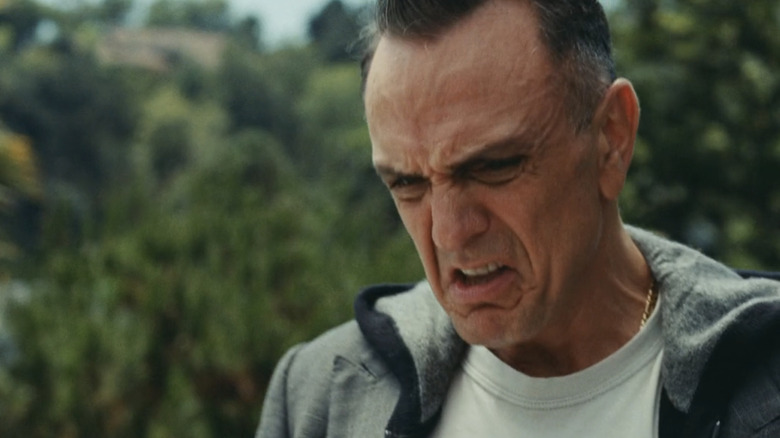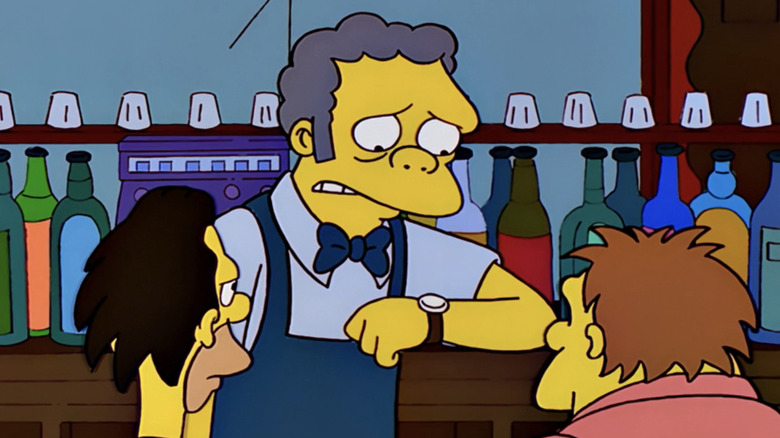Fox
The rise of AI in our everyday life is undeniable. Just a few years back, discussions about AI seemed like a futuristic concept where a Skynet-like super-intelligence would become self-aware. But now, we’re surrounded by chatbots, AI video and image generators, with media companies embracing the technology. This fast adoption of AI led to writers and actors striking due to Hollywood’s refusal to regulate the technology. But despite the strikes ending with protections against AI, we seem to be inching towards a future where AI-created films featuring virtual actors are the norm.
The rapid rise of AI has also created a dilemma for Hollywood voice actors. Voice recreation technology has advanced to the point that it’s hard to distinguish whether a Drake diss track is actually from Kendrick Lamar or whether Adrien Brody’s Hungarian accent in “The Brutalist” is his own speech or AI-enhanced dialogue. AI speech has been used blatantly, with Morgan Neville admitting to using an AI model of Anthony Bourdain’s voice in his documentary “Roadrunner”. We’re seeing standup specials created using an AI voice model of the late comedian George Carlin, further indicating that we’ll soon be surrounded by virtual approximations of the media we once enjoyed.
Amidst this grim scenario, Hank Azaria, a long-time “Simpsons” voice actor, tested out the technology that could potentially replace him, and the results were less than stellar.
Is AI voice acting inevitable?

HBO
By the end of 2024, “One Piece,” one of the longest-running anime series of all time, underwent a significant shakeup, which could be a sign of what’s to come for “The Simpsons”. Voice actor Kazuki Yao announced his retirement in December 2024 due to health issues, with his replacement, Subaru Kimura, announced shortly after. This was followed by Pamela Hayden, the voice actor for Milhouse, retiring from “The Simpsons” after 35 years in November of the same year. The silver lining was that both actors were recast instead of being replaced by AI voice models. But the possibility of AI replacements was still looming, especially with the youngest members of the “Simpsons” cast, Hank Azaria and Yeardley Smith, being 60 years old, and the oldest, Harry Shearer, being 81. What happens when they retire? “The Simpsons” could carry on indefinitely, and AI might not just be a viable replacement option for the studio, but a cheaper and quicker one. And the tech might be advanced enough to fool the fans.
However, it seems AI voice acting needs to improve significantly before it can replace these adored performers. Azaria, who voices several characters on the show like Moe, Professor Frink, and Chief Wiggum, visited the New York Times to gauge how close he is to being replaced by an AI voice model. His job seems safe for now, which should alleviate any concerns.
Hank Azaria isn’t convinced he’ll be replaced on The Simpsons … for now

HBO
During his visit to the NYT, Hank Azaria recorded short monologues as various “Simpsons” characters and listened to the AI program’s attempt to recreate each voice. He wasn’t impressed. The first attempt, where he recorded lines as Moe and listened to the AI-generated snippet, led him to say, “That was way off.” Although the model did a decent job of impersonating Azaria’s Moe, it lacked the “gravel” to convincingly replicate the voice. “If we were trying to sound like a robot, that would be a pretty good version of what we were trying to do,” he said.
If Disney decides to use AI voice modeling to replace “The Simpsons” cast, the tech would likely be fed hundreds of thousands of line readings, potentially allowing it to refine its performance to something much closer than what Azaria and the NYT produced. Nevertheless, it’s comforting to know that this particular experiment wasn’t very convincing.
Azaria concluded that the AI tech couldn’t replicate “a humanness” that “involves a character’s motivation, certain emotions, subtleties of physicality, facially or otherwise, that add up to a human being.” But he was more fatalistic in his final remarks, asserting that “people are going to listen to and enjoy and watch what they like.”
“They’re not going to care whether AI generated it or a human generated it or some combination of the two. Right now, what AI generates by itself, as Moe the bartender or anything else, isn’t going to cut it. But if it does start to cut it, people are going to listen to it, and they’re going to be grateful that it’s so readily available.”
Sadly, I believe Azaria is correct. But he doesn’t have to be.
We can prevent an AI-dominated future

Fox
In his video interview with the Times, Hank Azaria admitted that he only started to “think about AI seriously” recently, after Scarlett Johansson criticized a company for replicating her performance from “Her” for their AI personal assistant. However, AI voice recreation was a concern even before this 2024 incident. Before his death, Darth Vader voice actor James Earl Jones permitted Respeecher to use their AI tech to create new vocal performances using his recordings. Now, Disney can recreate his iconic Darth Vader tone, which they did for the “Obi-Wan Kenobi” mini-series. As Respeecher states on its official website, “With machine learning technology, we managed to create a clone of James Earl Jones’s voice, allowing Darth Vader to resume his role as the evil Sith Lord in all his glory.”
This raises questions about how effective the protections gained from the recent strikes are. Studios are investing heavily in this technology, regardless of whether contracts stipulate that actors’ likenesses and voices should be protected. According to PrismReports, in 2024, the Screen Actors Guild (SAG-AFTRA) signed two deals with AI companies allowing voice actors to license “digital voice replicas” of themselves
Credit: www.slashfilm.com


